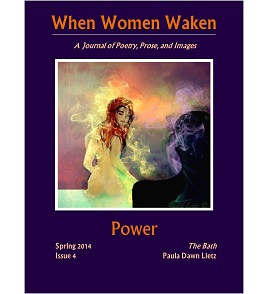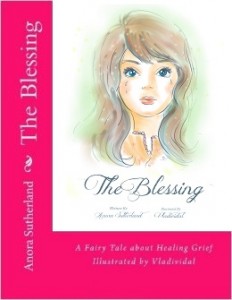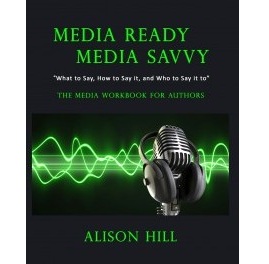Seven Reasons You’re Publishing Too Soon
 If you’re like many of us, the chance to publish a book of our own writing is like arriving in the promised land. It is the holy grail, an elixir, a blissful intoxication. Seeing our work in print can’t come soon enough!
If you’re like many of us, the chance to publish a book of our own writing is like arriving in the promised land. It is the holy grail, an elixir, a blissful intoxication. Seeing our work in print can’t come soon enough!
I’ve felt that way. (Still do every time a new edition of When Women Waken comes out.)
I honor that aspiration, that desire, that dream to see manifestation of our own creative work. Why wouldn’t we honor that. It is a milestone in a person’s life, like completing high school and college.
But, like climbing Everest, or deep sea diving, or even just international travel, if you’re not prepared, if you rush it, or do it too fast, you will get sick.
You may not get physical sicknesses from insufficient oxygen, nitrogen or food poisoning, but your spirit will likely take a big hit.
The spiritual sickness happens if you’re a complete unknown publishing your book either through Lulu, CreateSpace, Lightening Source, or one of the for pay services of traditional publishers, like Hay House, or one of the micro-publishing services like my Inner River Press, or ClearSight Multi-Media; or Lystra Press, or….
But it can also happen even if you’re a highly respected professor, or professional, or expert…
Because launching and sustaining book sales is complex, very very complex, and for most of us, it is completely outside of the realm of our experience.
Am I throwing water on your flame? Discouraging you from your dream? A downer? How about being a life saver?
Learn to swim before jumping in over your head. Learn to climb at gradually increasing altitudes before taking on Everest, or a Nepal Trek. Train in diving, over time. Travel with experienced travelers and start slow and easy.
Here are seven reasons you’re publishing too soon:
- You haven’t done your homework and have no idea where your book fits in with the books already how there – what is unique and valuable about your book compared with books that people have heard about.
- You haven’t built a platform. You don’t have access to an audience, with a prepared presentation style, on a topic you’re expert at.
- You have no idea about book marketing – you think – as many of us do, that books just sell themselves. You have no idea how long you will have to market your book – from year zero minus three to year zero, year one, two, three, five, ten…
- You have not prepared yourself for the media. You haven’t researched the topic of media readiness, purchased and done the work in Media Ready, Media Savvy, by author and media pro Alison Hill, or taken a training.
- You aren’t a networker in person, and have no patience for online networking through social media.
- You aren’t comfortable promoting – even if that means just talking about your book, not pushing it.
- You think you can do this all by yourself, without a coach, without a writers’ group, without marketing teams, without a network.
How will publishing too soon hurt you?
- Discouragement.
- Disappointment.
- Shame.
- Abandonment of your dreams.
What to do if you’ve already published too soon?
See the next blog post, coming soon. Link will be posted here.
—
 Anora McGaha is an American writer, poet and marketing professional who founded Women Writers, Women Books (www.booksbywomen.org) in 2011 with outreach on Twitter via @womenwriters. She has been marketing for small businesses since May 2008, using social media and online resources. Currently she supports her work with this site, and the journals, by developing WordPress websites, coaching writers and authors, and marketing an important tiny town and an important community restaurant in that town, the Pittsboro Roadhouse & General Store.
Anora McGaha is an American writer, poet and marketing professional who founded Women Writers, Women Books (www.booksbywomen.org) in 2011 with outreach on Twitter via @womenwriters. She has been marketing for small businesses since May 2008, using social media and online resources. Currently she supports her work with this site, and the journals, by developing WordPress websites, coaching writers and authors, and marketing an important tiny town and an important community restaurant in that town, the Pittsboro Roadhouse & General Store.
Author: Social Media for Business; The Blessing: A Fairy Tale about Healing from Grief
As Founding Editor: Women Writers, Women Books; When Women Waken; Our Stories
As Micro-Publisher: Gray Fox Wilderness Stories by Andy Smith; Media-Ready, Media Savvy by Alison Hill; Working Title: The #iamsubject Stories, edited by Diane DeBella
Category: On Publishing, US American Women Writers


























Well, I’ve committed all to the aforementioned sins plus a few. Then I really messed up and entered Kindle Scout because of the temptation of getting an advance and a contract. Plat form is the golden ticket from what I’ve learned all the hard way. The book may be ready but just getting votes, not even buyers is a battle of epic proportions and you need an army. That’s where platform is crucial. I tried to skip it but my book will most likely not garner the attention it could have if I’d been prepared. I’m the cautionary tell of how not to do it.
Thanks for a great post.
Hi Anora, Thank you for such an honest article. I have done #1.
With regard #7, I am looking for a writing group in my area. There are reading groups or should I consider joining the reading group? Do you think this would help me?
And #6, I am not promoting because it is still at infancy stage. Only my family knows I am writing.
I must say, your article can make amateurs stop and not even start. For me, this is inspiration. I am not going to be deterred, I am going to write and finish.
Many thanks,
Many writers do so much better with a trusted writing group, and it can take some time to find the right one. Reading groups are usually different. You would want to be able to read your writing and get feedback – supporting what’s strong and letting you know where it needs work. And it will help you to give that kind of feedback to others. This article is meant to get us thinking, not to discourage anyone, but I can see how it might. It’s time for me to write the next article. Waiting too long to publish.
Thank you for writing this.
As a professional marketer and an amateur author, it really frustrates me to see great writers flounder with the marketing aspect. For non-fiction, I think the 7 things you’ve listed above are spot-on. Particularly #2.
For fiction writers, this gets muddier. We still have to market ourselves and our books, but our expertise is in imagination, and not some powerpoint-friendly topic.
Also, I think there’s a whole discussion missing about defining a writer’s “platform” and how that differs for fiction and non-fiction. The only industry that talks about “platforms” is writing and publishing, and in my experience, it creates frustration and confusion that is largely unnecessary.
In marketing terms, a platform is an audience, or an engaged or qualified audience. It’s not about having XXXX Twitter followers, it’s about having XX of the right Twitter followers that you engage with and who truly care to see you succeed, those people who are positioned to signal-boost on your behalf and who WANT to be able to do so. These are book bloggers, subject experts, and readers (please note, I’m not talking about other writers. A “platform” filled up with other writers who are only creating noise by trying to sell you their books will give you nothing valuable. I am friends with and have a network of writers because the camaraderie and shared lessons learned are valuable to me. But I don’t look on them as my potential audience except in the most general of terms.)
For non-fiction, a “platform” might include establishing oneself as a thought leader – answering HARO requests and being interviewed as an expert by reputable journalists.
For fiction, a “platform” includes engaging and making friends with people who read and review books, commenting and engaging with bloggers, and in the most general terms just being an interesting person and making new friends. Fiction authors will best benefit from NOT talking about books all the time and instead share content that is tangentially related to their topic of interest. I’m a sci-fi writer, so I share content about science, new discoveries AND about science fiction trends, books and movies. A fantasy writer might tangentially share stuff about their relevant interests (camping or hiking? Horses? Herbology?), etc.
The waiting really is the hardest part! In the time I’ve spent trying to build an audience for my not-yet-published first novel, I’ve finished a second, and am halfway through a third. Lately I’ve grown so impatient that I decided to release my memoir next month – then realized how silly that was because I have not yet begun to market my work of that sort, either. I tell myself that the delay will ultimately be worthwhile, and I’m sure it will be. But it sure is frustrating sitting on a pile of completed work while I wait for me as an author to be “ready” to release it.
Lori, thank you so much for your response. First of all congratulations on finishing 2 novels, and being half way through a third! You’re prolific. And how exciting that you’ve written a memoir.
In a way this essay is serious, but in another way it’s for us to begin a discussion. You know the chicken and the egg question – there’s no answer, and we have both chickens and eggs, and eggs can make chickens and chickens can make eggs.
Really what I’m saying in this piece is that there’s marketing work to be done, to get in the groove, not that we ever arrive, unless we’re picked up like Wild was with Oprah, or somehow fall into the grace that Anne Lamotte and Elizabeth Gilbert enjoy (and have worked hard to get!) I had always thought the mountain to climb was writing the book… only to discover that it’s a life long journey – writing, building a platform, publishing, marketing, growing your platform, writing…. Now I’m starting to get it, that it’s a way of life, perhaps like being a yogi, or a farmer, or a fitness teacher.
Let us know what your memoir is called, and maybe you’d like to write a guest post (if you haven’t already?)? Email editor@booksbywomen.org, if you’d like to discuss that. – Anora McGaha